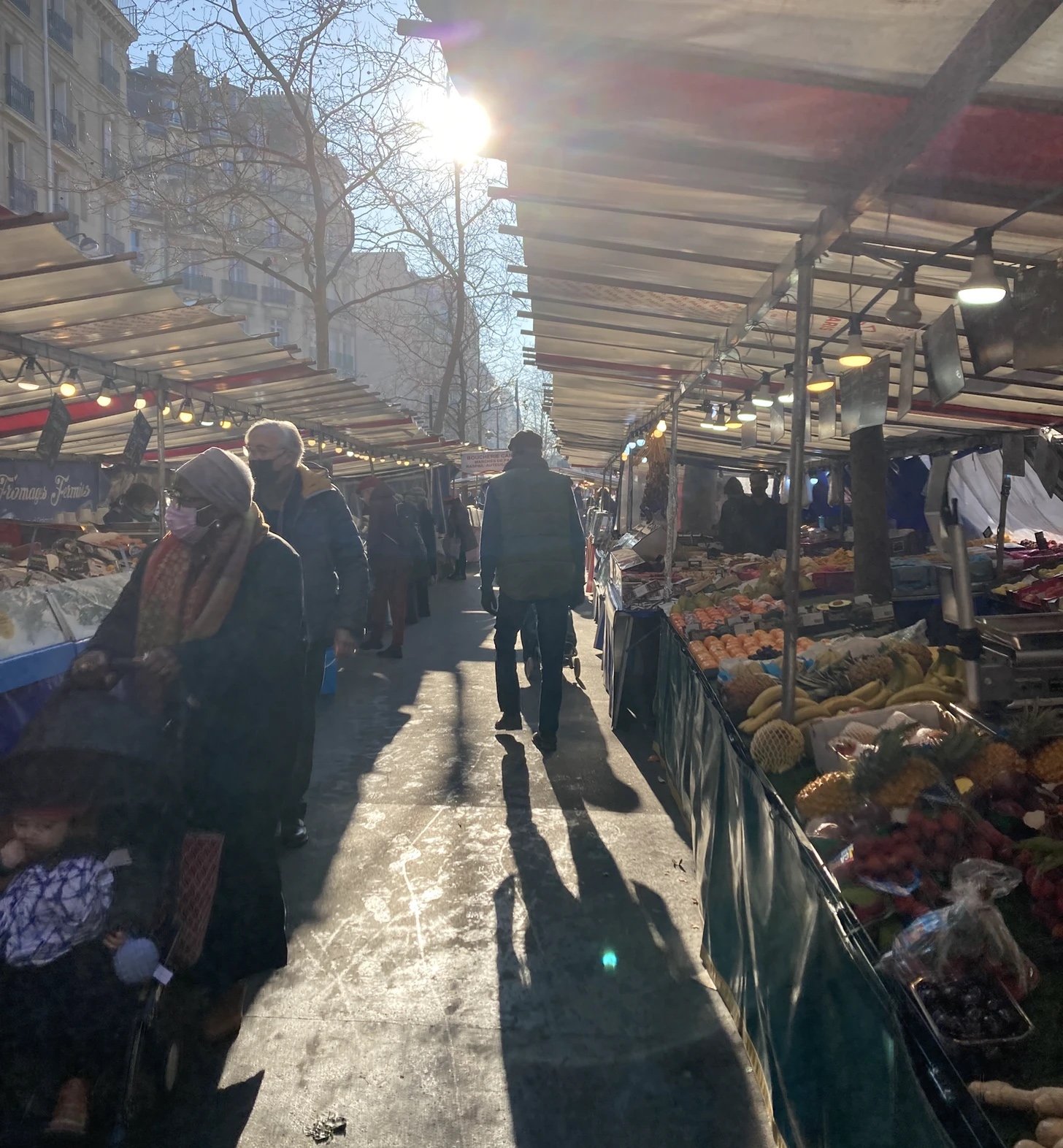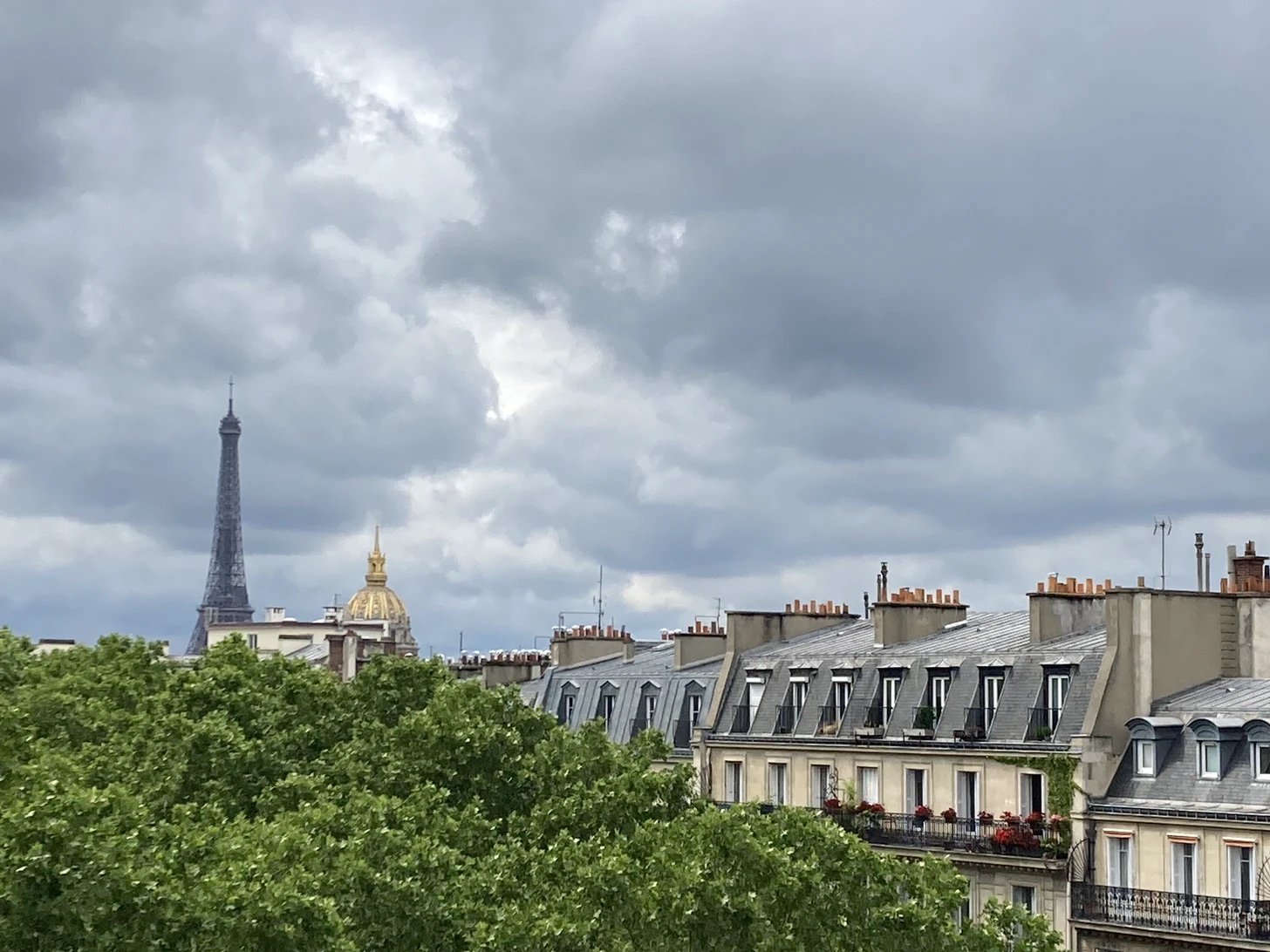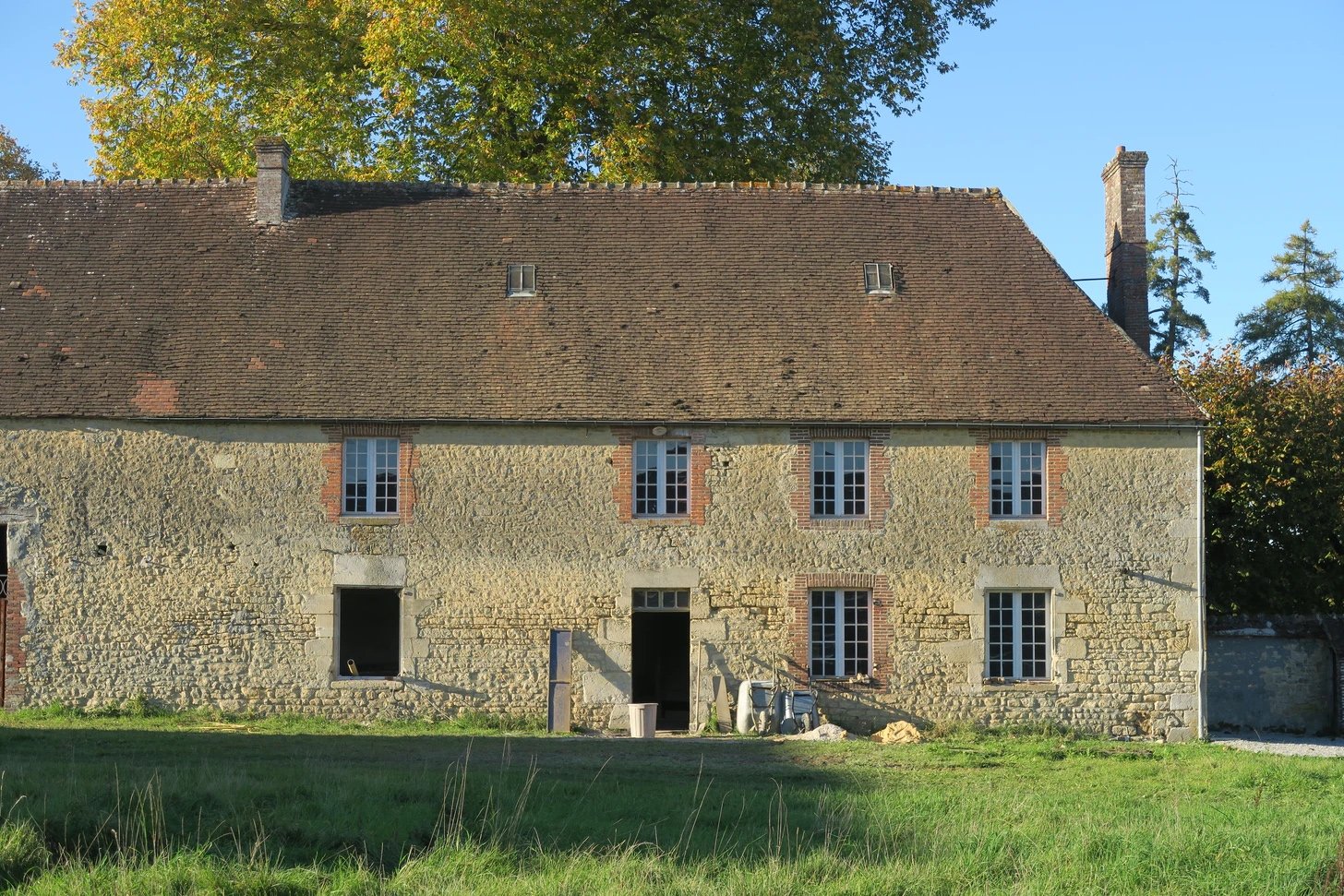Mamianne discovers Paris and inspires new style for the Farmhouse
Chère amie, cher ami,
“I like that Monoprix,” said my mother-in-law, her eyes lit with the gleam of the satisfied shopper. She, who had lived through the Great Depression in an unheated farmhouse in rural Maryland, where water had to be fetched from the well and warmed on a coal stove, who had known the privations of the Second World War and more than the usual vagaries that life brings, was not a superficial person.
People, not possessions, were the focus of her life.
She had come to live with us in rural France, the better to care for her failing older sister. And when Tante Jacqueline died, she settled in with us in Paris, the affectionate and steadfast Mamianne who was always waiting, with toast and home-made jam, and most of all, a listening ear, for children coming home from school.
But Mamianne was not immune to the material charms of life in Paris.
“Ah, to be young again!” she exclaimed, as we paused in spring sunlight on the quai d’Orsay. Two provincials in the City of Light, we had come to town for a visit -- a year or so before we found our apartment in Paris. Her belle-fille (me) had organized a day of vigorous tourism. Her feet ached and, although I didn’t think of it at the time, her thin bones probably did, too.
But “Paris sera toujours Paris! La plus belle ville du monde,” she continued, humming the jaunty bars of Maurice Chevalier’s 1939 tube or hit song. Her movie-going adolescence had coincided with Maurice Chevalier’s career as a Hollywood star before the war. And she had joined the Women’s Army Corp in 1942.
“Paris will always be Paris
The most beautiful city in the world
Despite the darkness of these times
Her brilliance shall never dim
Paris will always be Paris!”
The two of us trod the sidewalks of la grande ville. We perused the exhibits at the Louvre with admiration, sighed at the beautiful wares displayed on the rue de Rivoli, stopped for ice cream at the Palais Royale. We gaped at the crowds, were almost run over by taxis and a bus…all day long, we shamelessly gawked at life in the great urban triumph that is Paris.
Mamianne was delighted by Paris. It suited her. She took the métro across town to buy painting supplies. She made portraits of our family and various members of the household, like Barbara, our Polish housekeeper, and little Patrizia, Barbara’s daughter.
She had photographs developed in the camera shop across the street. She made albums for our children and home-made postcards she mailed to her brother, showing him views from the windows of the apartment.
A balcony view, with les Invalides and the Eiffel Tower in the distance.
The local Monoprix was where she found "brassières," tiny knitted sweaters, to send to new-born babies, little French children's clothes, and everything from a silk scarf to a bedside lamp for herself.
From the kioskeur whose octagonal green stand on the corner stood under a tree, fragrant with white blossoms every spring, she bought crossword puzzles to improve her French. She snapped his photograph, too. He encouraged her to move up the levels but, ever modest as to her own abilities, she resisted. She took French lessons at the Alliance française, a long, meandering bus ride away from our apartment. She didn’t mind the long ride; she looked forward to it. It was part of the unfolding movie of Paris.
The shopping and the classes performed the same function as riding the bus or the métro. Here was life. Here was hustle and bustle. Here was France. The fromager setting out his display of fragrant cheeses, butter and cream in the morning on avenue Mozart where we lived, the boucherbent low under the weight of a beef carcass he was toting into his shop, a child running homeward with a baguette, an old man, with a sweeping white moustache and huge gnarled hands, playing the accordion for spare change, an African in a carefully wound headdress of bright cloth.
Her kind and observant interest in people was repaid in ways that sometimes surprised her. Once, while waiting for French class to begin, she went across to a boulangerie to order a café and a chausson aux pommes.
“The man came out from behind the counter and lifted me up on the stool!” she exclaimed, amused and bemused.
As time went on, her slender body curled inward like a drying leaf. She became fragile, although she valiantly accompanied our young Edward to the skate park or took Henry to the movies.
Once on the métro, two gypsies sat on either side of her. Usually, this is prelude to robbery.
“The man started stroking my hair!” she told me. “I think he was crying! I couldn’t understand what he was saying, but I believe I reminded him of his mother in Romania.”
Another time, a strange woman came to the door while she was alone in the apartment.
“She said I must help her, she was looking for someone, her mother who lived in the building. I really don’t think it was true, but she was so agitated. Before I could stop her, she barged right in the door.”
I sighed. A stratagem to prey on the unwary and the weak.
“She said she needed a pencil and paper to write a note to this person. She charged around the salon, turning over papers and opening drawers.
“I called to her that I had my purse, and perhaps I had a pen and paper there."
Mamianne smiled gently.
"Of course, that got her attention. She went through my money. I asked her if she needed any. But, you know, she put it all back in. And she gave me my purse back.”
“And then she left?” I asked.
“Yes. I really couldn’t understand what she was saying at the end. But I think she was trying to bless me.”
Ah, dearest Mamianne! Next Sunday is la Fête des mères, Mother's Day here in France. That must have been why I was thinking of her. Although at first, I was thinking about Monoprix.
A year ago in May, I started working again on the decoration of the Farmhouse at Courtomer. Perhaps it was the enforced hiatus of the pandémie, but I saw la maison de la ferme with new eyes.
Unlike the Chateau, grand and elegant, imbued with the aristocratic heritage of the Ancien Régime, its story entwined with the history of France, la Ferme is a workman’s dwelling. It is handsome but utilitarian, a pragmatic expression of vernacular style. Like rural France itself, it inched toward modernization so prudently that it almost missed the advent of indoor plumbing, which we installed a few years ago.
The Farmhouse at Chateau de Courtomer, a mélange of centuries of vernacular building in rural Normandy
The character of the Farmhouse is somehow reminiscent of Mamianne’s affection for la France populaire, the life of everyday France. Although the lack of running water and the pump handle in the yard might also recall parts of her life!
I found myself turning to the venerable Monoprix, to La Redoute and Bouchara as I thought about how to furnish and decorate the Farmhouse. Over the past two centuries, these marques françaises have absorbed new trends, transforming them for consumption by le Français or Française de souche, the man or woman of French stock. A style emerges that, like Mamianne’s experience in Paris, is a little unexpected, not quite conventional, and distinctly French.
Next week, I’ll write to you about how the Farmhouse was furnished and decorated…its vernacular building style…and how both are linked to France…and Normandy’s…resilient fidelity to French tradition.
A bientôt au Chateau,
P.S. Maurice Chevalier sings "Paris sera toujours Paris"
P.S.S. As always, Heather and Beatrice (info@chateaudecourtomer.com and +33 (0) 6 49 12 87 98) will be happy to help you reserve your holiday or special gathering at the Farmhouse or the Chateau. We still have a few openings for this year and are taking bookings through 2024. Please feel free to call or write us.



